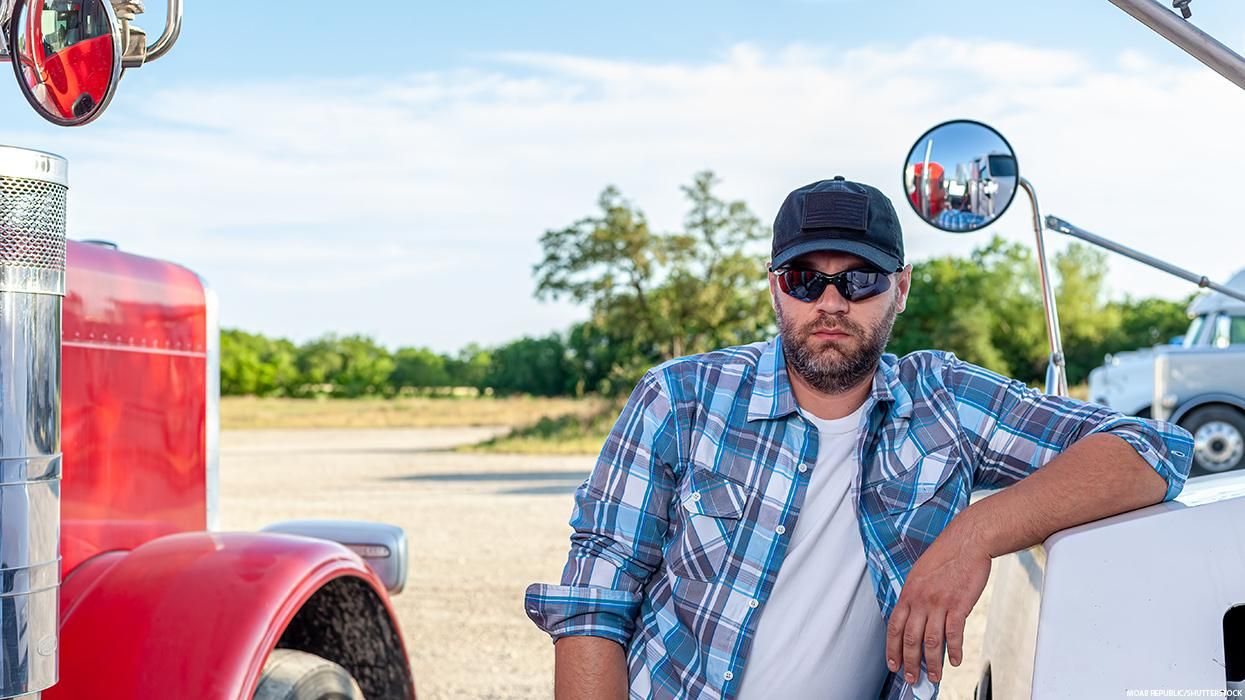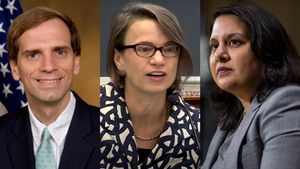As the largest source of polluting emissions in the state, California is seeking to ban the sale of diesel big rig trucks by 2040.
Following Governor Gavin Newsom's initiative to phase out gas-powered vehicles by 2035, which will mandate all vehicles sold in the state to be zero-emission, the newest proposal brought forth by the California Air Resources Board would require any truck medium-duty size and above to be emission-free by 2035. It would also mandate all government vehicles to be zero emission by 2027, whereas large corporations like Walmart and Amazon would have until 2042.
Will Barrett, the American Lung Association's senior director for clean air advocacy, supports the Board's proposal, citing the fact that large diesel-fueled trucks are the largest source of nitrogen oxide emissions in California.
“Pound for pound, heavy-duty trucks are putting out far more pollution than anything else on the road," he told the LA Times. "And that’s really directly contributing to the fact that California has the worst air pollution in the country.”
Cheap to maintain and durable in transporting cargo, diesel trucks are the most common vehicle in the country. Without the proper charging infrastructure to support the shift, detractors say the proposal would have devastating effects on the economy.
California likely would not be able to construct the required amount of charging stations in the allotted time. Even if the state managed to build them by the deadline, the necessary energy to power the trucks would require them to charge for several hours, and could rapidly overload the power grid.
Chris Shimoda, vice president of the California Trucking Association, does not believe the state or nation's economy could withstand the fallout, but admitted that there were no other foreseeable solutions for the environmental consequences.
“That’s not going to work given how overly strained the supply chain is," Shimoda said. "We don’t have an answer for that issue right now.”
Still, the Board wrote in their proposal that they had a “moral obligation" to end the reliance on polluting vehicles, as the most impacted areas are low income communities with POC residents.
The Board wrote: “Decades of racist and classist practices, including red-lining and siting decisions, have concentrated heavy-duty vehicle and freight activities in these communities, with concomitant disproportionate pollution burdens."
Andrea Vidaurre, a policy analyst at nonprofit People’s Collective for Environmental Justice, supported the Board's proposal. Her organization's town of Inland Empire is home to one of Amazon's largest warehouses, causing thousands of trucks to pass through residential neighborhoods daily.
“The rule truly is monumental. This is the only way we can get diesel out of our community," Viadaurre said. "Right now you have 1,000 trucks an hour driving next to schools or communities in the Inland Empire. It is like hundreds of streets throughout the Inland Empire that are dealing with diesel spewing onto windows, in people’s houses, diesel spewing into the lungs of the kids playing, diesel causing people not to be able to go play outside. This is all real stuff. And we’re talking about people’s lives.”
The Board's motion would save an estimated 5,000 lives between 2024 and 2050, as well as cutting healthcare costs for the state by $57 billion. The California Air Resources Board is set to vote on the proposal October 27.


















































